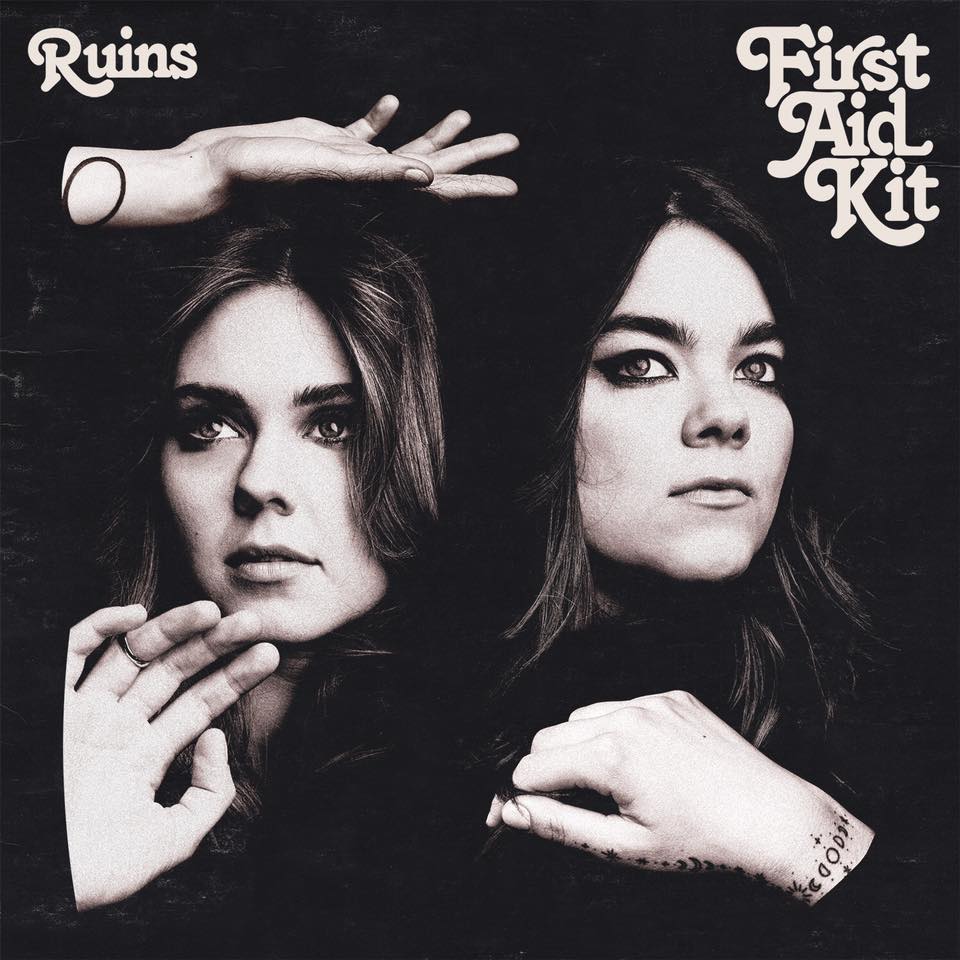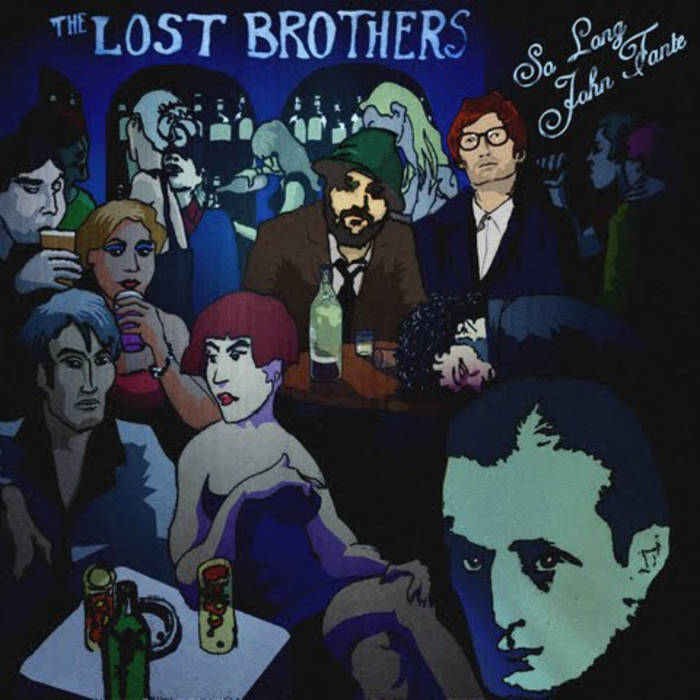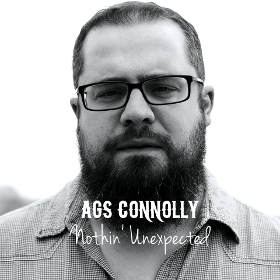Rating: 8/10
I recently called Caitlyn Smith’s debut a benchmark of vocal ability–and this latest record by Swedish sisters Klara and Johanna Söderberg, known collectively as First aid Kit, might just be the benchmark of harmony, and how to express lyrics already so potent in even deeper ways with just the right chords and dissonance. Similar to the Secret Sisters, these siblings have an uncanny ability to bring out that forgotten element of music and make harmony one of the key factors of their musical expression. Melody and vocal ability are not the only musical elements being thrown out the window in the age of the song, and duos like these are necessary to help remind us of the dying art and great importance of harmony.
So take all the harmonic nuances and chilling chords of a Secret Sisters record, but add much more variation in style. The Secret Sister’s’ latest record was minimalist, allowing their vocals and harmony to be the main focus. First Aid Kit’s approach is to showcase their incredible singing with backdrops of folk/Americana, (“Fireworks,” “Ruins,”) pop, (“Rebel Heart,” “It’s a Shame,”) and stone cold country (“Postcard.”) IN this way, the production is varied and interesting and only serves to elevate the sister’s talent and prove they can excel at more than one style. It’s also what might hold them at arm’s length from traditionalists and more mainstream fans alike, but rather than their sound feeling like it can’t make up its mind, it feels defined. Far more than many, First aid Kit have, for the most part, a distinct handle on how best to produce a particular song to let that song live up to its full potential and resonate with its listeners.
Then we add to all of this all the complex and heightened emotions of a breakup record, triggered by Klara’s own recent split, and this record gets a touch of the same restlessness and self-discovery which marked Lilly Hiatt’s latest album, Trinity Lane. Similar to that record, this First aid Kit release largely captures a moment in time and all the various emotions sparked by that moment. There’s a sense of loss on some songs, regret on others, and a thread of hope running through the entire album that connects the whole thing and makes it cohesive, regardless of the varying styles and moods.
It’s hard to single out individual songs from this project because the whole thing tells its own story and takes a complete journey, contributing more as a finished product than as the sum of separate songs. Certainly the most country offering here is the charming, shuffling “Postcard,” which makes great use of the piano, an instrument I’d have liked to have found more on this album after hearing its effect on this song. It’s hard to question the ever-building five-minute opener, “Rebel Heart,” either, although this one does decidedly lean more towards the folk pop side of things. There’s vulnerability on “Fireworks,” reflection on “My Wild Sweet Love,” and forward-thinking resolve on “It’s a Shame.” It all works together and serves a purpose, and really, for the first eight tracks of this ten-track journey, there is no measurable misstep.
It does end on a bit of a whimper, however, at least compared to the extremely high bar the sisters set for themselves earlier, especially across the first half of this record. “Hem of her Dress” is the glaring exception to their smart production choices, bursting forth into some sort of loud, boisterous, almost mariachi ending that completely takes away from the thoughtful lyrics of the song and does not match with the acoustic feel at the beginning. The closer, on the other hand, called “Nothing Has to be True,” is very smart sonically but doesn’t carry as much weight lyrically as some of the other material here. Maybe it’s just the standards to which I’m holding this talented group, but it definitely seems like First Aid Kit end this record at a decidedly lower point than the one at which it started. That’s not to take away too much from a great album, but honestly, halfway through this release, I thought we might be looking at the first 10/10 of the year.
And that’s mostly what you should take away from this review, that a good portion of this album is not just good or even great; rather, a good portion of this album is flawless. The production is interesting and tasteful, the writing is smart both melodically and lyrically, and the harmonies are stellar. I mentioned that some people might not get this group, people on both sides of the divide, but perhaps a better way to view First Aid Kit is that they’ve got something to offer everyone, and all of it is quality music of substance. For this listener, a lot of it happens to work, but if your tastes are stricter, maybe you’ll gravitate solely toward the more traditional “Postcard” or the more modern “Rebel Heart.” Whatever your natural inclination, I encourage you to give these sisters and this album a listen; talent and good music cross all genre lines.




